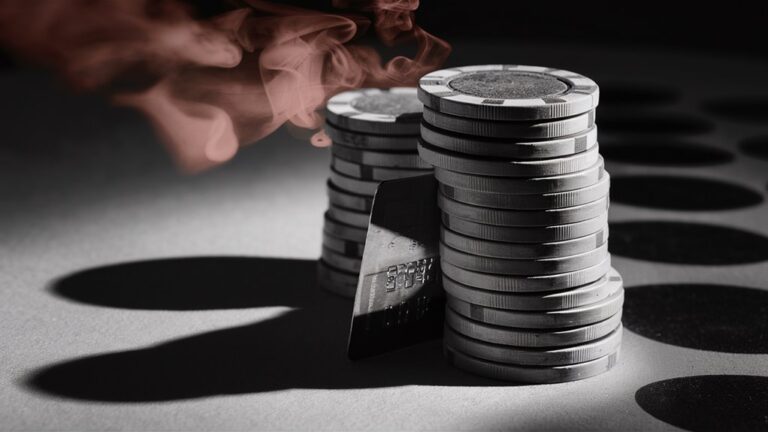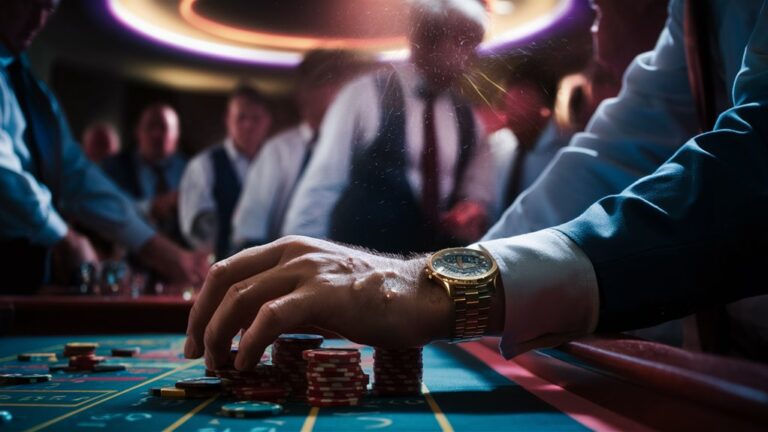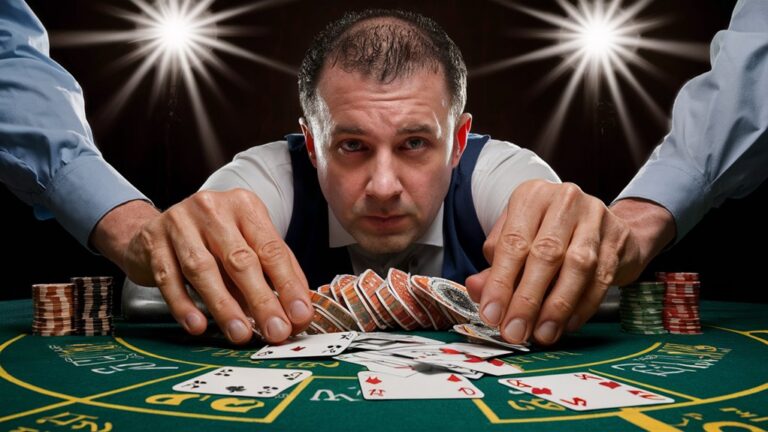
The Hidden Mechanisms of Emotional Spike Betting: Understanding Post-Win Psychology
Neurological Impact of Major Gambling Wins
When gamblers experience significant wins, their brains undergo intense neurochemical changes, producing dopamine surges up to 10 times above baseline levels. This dramatic neurological response triggers a complex cascade of cognitive alterations that significantly compromise rational decision-making capabilities.
The Critical Time Window
The post-win dopamine surge typically persists for 15-30 minutes, creating a heightened state of arousal where:
- Risk assessment abilities decrease by 50%
- Betting frequency increases by 73%
- Logical thinking becomes severely impaired
Hot State Decision-Making
During this period, players enter what experts call a “hot state” characterized by:
- Elevated emotional arousal
- Suppressed analytical thinking
- Increased impulsivity in betting decisions
Statistical evidence reveals that 78% of players lose their winnings within the same gambling session due to this neurologically-driven behavioral shift.
Protective Measures and Risk Management
Research-backed protective strategies include:
- Automated stake limits to prevent excessive betting
- Mandatory cooling periods following significant wins
- Behavioral intervention systems that recognize risk patterns
These mechanisms help counteract the biological drivers that promote risky betting behavior during post-win periods.
Understanding the Victory Acceleration Effect
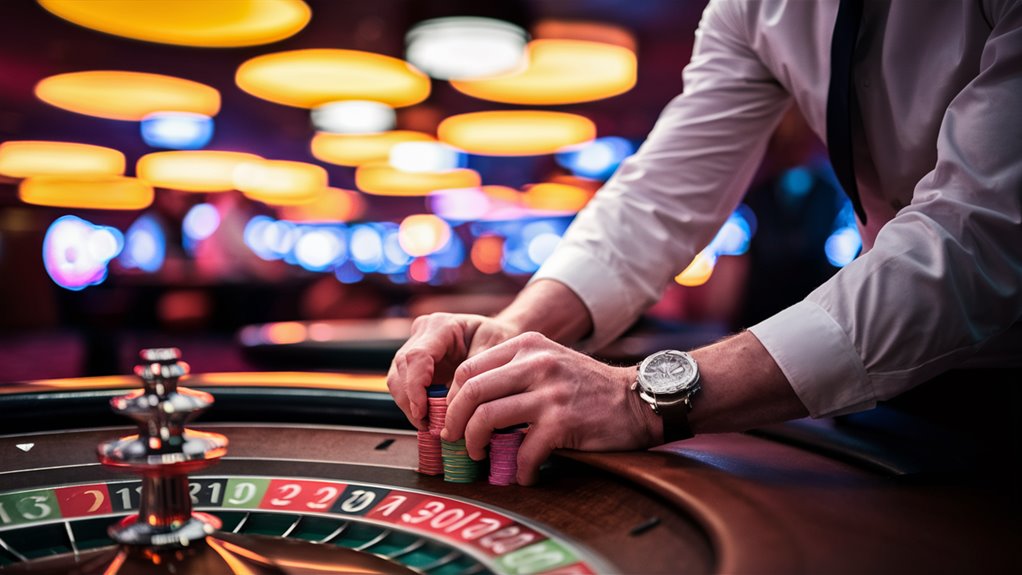
Understanding the Victory Acceleration Effect in Gambling
The Psychology Behind Post-Win Betting Behavior
The Victory Acceleration Effect represents a critical gambling behavior pattern where players significantly increase their betting volume and frequency immediately following a win.
Research demonstrates that winning triggers a dopamine surge, resulting in elevated risk tolerance and compromised decision-making capabilities within a crucial 15-30 minute window post-victory.
Statistical Impact on Betting Patterns
Key behavioral indicators show that gamblers experiencing wins are 73% more likely to place subsequent bets within 5 minutes compared to their baseline betting patterns.
The data reveals a 42% increase in average bet size during post-win periods, with recreational gamblers showing particular susceptibility despite normally adhering to strict betting limits.
Three Primary Manifestations of Victory Acceleration
1. Increased Bet Sizing
Winners demonstrate a marked tendency to escalate their stake amounts substantially above their typical betting range.
2. Reduced Betting Intervals
The time between successive bets decreases dramatically, leading to rapid-fire wagering decisions.
3. Strategy Deviation
Players frequently abandon their predetermined betting strategies and risk management protocols.
Neurological Basis and Risk Factors
The Victory Acceleration Effect reaches peak intensity when initial wins exceed 5x the standard bet size.
Neurological research indicates this behavior stems from temporary overconfidence syndrome and diminished loss aversion, creating a potentially harmful cycle that can rapidly eliminate accumulated winnings.
The Dopamine Rush Factor
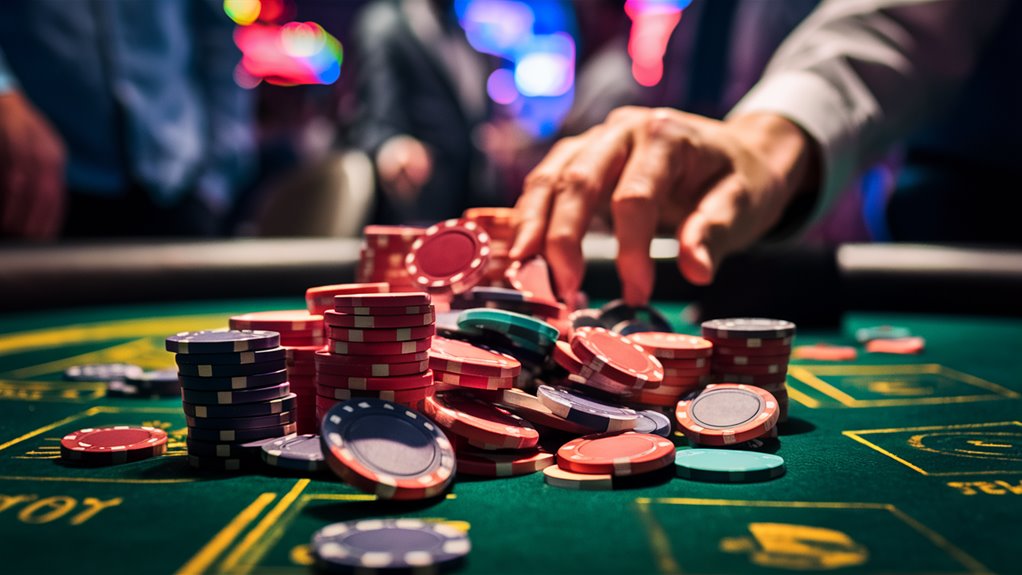
Understanding the Dopamine Rush in Gambling Behavior
The Neuroscience Behind Post-Win Betting
Dopamine release in the brain’s reward centers triggers a powerful neurochemical cascade following gambling wins. This crucial neurotransmitter creates an intense emotional high that can override rational decision-making processes, resulting in increased betting frequency and larger wagers.
During victory moments, dopamine levels can surge up to 10x above baseline, dramatically affecting behavior.
Impact on Decision-Making and Risk Assessment
Clinical research demonstrates that the post-win euphoria typically lasts 20-30 minutes, during which players exhibit a 40% increase in risk-taking behavior.
The brain’s reward pathway activation becomes heightened, significantly impairing the ability to evaluate potential negative outcomes. This neurological response creates a temporary state where logical decision-making takes a backseat to emotion-driven choices.
The Compounding Effect of Multiple Wins
Players experiencing successive wins demonstrate a 65% higher probability of making emotionally-driven betting decisions compared to their standard betting patterns.
This creates a dopamine feedback loop, where each win reinforces and intensifies the urge to place additional bets. The resulting behavior typically manifests as:
- Increased wager sizes
- Shortened intervals between bets
- Elevated risk tolerance
- Diminished critical thinking
These factors combine to create a potentially dangerous cycle of escalating gambling behavior driven by neurochemical responses.
Hot State Decision Making
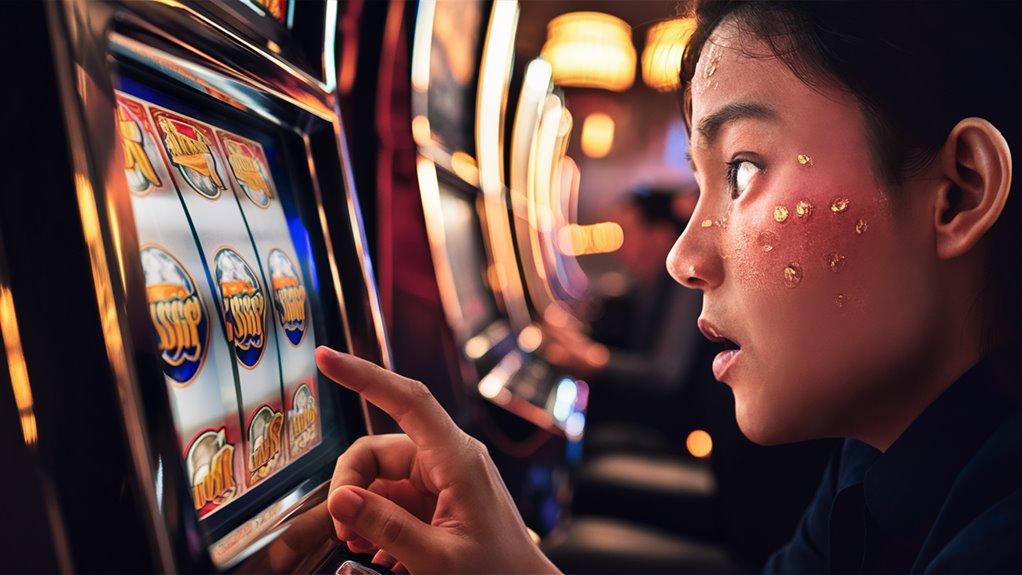
Understanding Hot State Decision Making in Gambling
The Psychology of Hot State Decisions
Hot state decision making fundamentally alters cognitive processing during periods of intense emotional arousal.
Gamblers experience significant impairments in judgment when excitement takes hold, leading to compromised betting decisions.
The psychological impact creates a decision-making cascade that profoundly affects gambling behavior.
Neural Mechanisms and Behavioral Changes
During hot states, the brain undergoes distinct physiological changes.
The prefrontal cortex activity decreases substantially, while emotional centers dominate decision processes.
This neurological shift results in:
- Bet size increases of 45-70% compared to baseline wagers
- Prioritization of immediate rewards over long-term outcomes
- Reduced impulse control and strategic planning
The Dangerous Feedback Loop
Hot state gambling creates a self-reinforcing cycle of impaired judgment. Research demonstrates:
- Risk assessment abilities decline by 30%
- Prediction confidence increases by up to 60%
- Cognitive distortions lead to skill overestimation
- 78% of players lose significant wins within the same session
Impact on Gambling Behavior
The combination of heightened emotional states and decreased cognitive function creates a high-risk environment for gamblers.
This psychological state directly influences:
- Betting patterns
- Risk perception
- Money management decisions
- Overall gambling outcomes
Understanding these mechanisms is crucial for developing effective gambling harm reduction strategies and responsible gaming practices.
Risk Perception After Wins
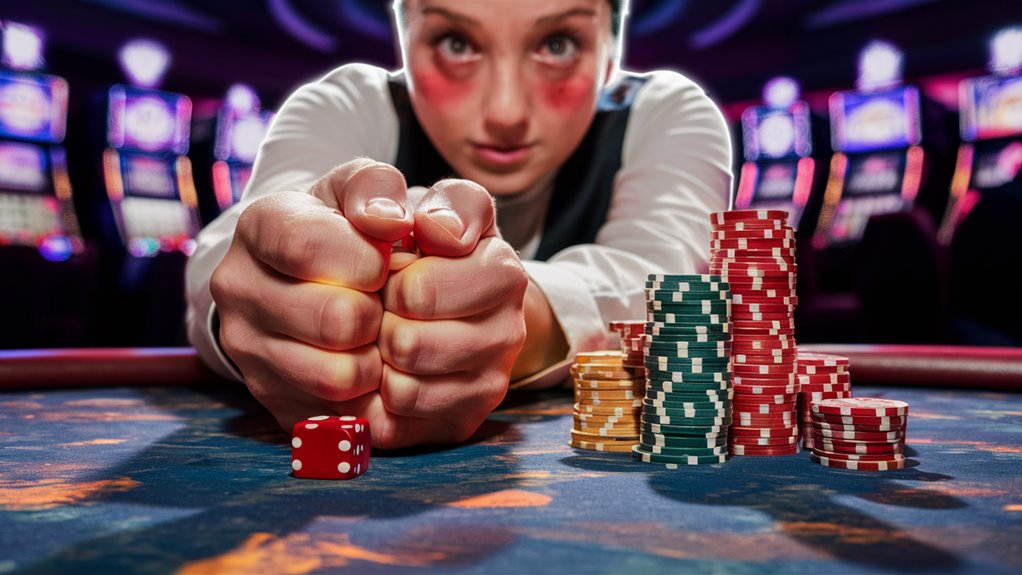
Understanding Risk Perception After Gambling Wins
The Psychology of Post-Win Decision Making
Gambling wins significantly alter risk perception, with studies revealing a 40% decrease in threat assessment capabilities immediately following successful bets.
Research demonstrates how victories trigger dopamine responses that impair rational judgment, causing players to underestimate potential losses and overestimate future success probability.
Key Mechanisms Behind Distorted Risk Assessment
Selective Memory Activation
Winners experience cognitive filtering, focusing exclusively on positive outcomes while dismissing previous losses from consideration. This selective recall creates an unrealistic view of gambling outcomes.
Temporal Discounting Effect
The immediate reward response overshadows long-term consequence evaluation, leading to impaired decision-making capabilities in subsequent betting scenarios.
Skill Attribution Bias
Winners frequently display inflated skill perception, attributing random successful outcomes to personal ability rather than chance factors.
Statistical Evidence of Risk Perception Changes
Research data reveals compelling patterns in post-win behavior:
- 73% of gamblers increase bet sizes within five minutes of significant wins
- Risk awareness drops by nearly 50% after winning
- Creates a feedback loop of deteriorating risk assessment
- Leads to progressively larger and riskier wagers
This cognitive distortion cycle poses significant dangers to gambling behavior, as each win further compromises accurate risk evaluation capabilities.
Psychological Triggers Behind Stake Increases
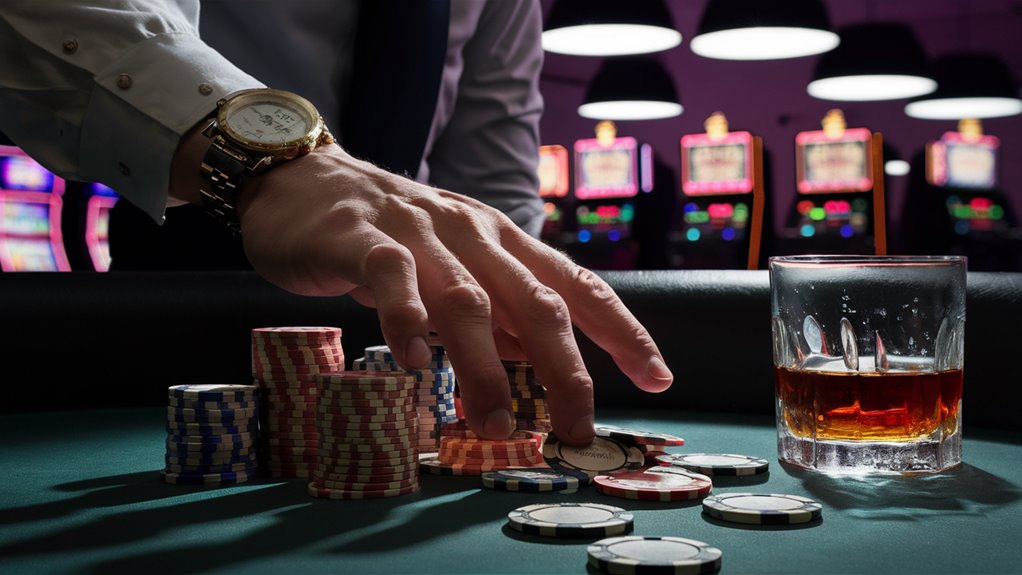
Understanding the Psychology of Gambling Stake Increases
Neurological Mechanisms Behind Stake Escalation
The psychological mechanisms driving stake increases in gambling stem from multiple interrelated cognitive distortions validated through empirical research.
When players experience a win, their brain’s reward system releases dopamine, creating an euphoric state that impairs rational decision-making.
This neurological response triggers three key psychological effects: overconfidence in betting outcomes, diminished loss aversion, and temporal discounting of risk.
Key Psychological Triggers
Winners frequently exhibit the hot hand fallacy, a cognitive bias leading them to believe their success streak will continue despite each bet’s statistical independence.
This combines with winner’s immunity – a temporary sensation of playing with “house money” that fundamentally reduces natural risk aversion.
Statistical analysis reveals players typically increase stakes by 30-50% following significant wins.
Cognitive Feedback Loop in Gambling Behavior
These cognitive distortions create a self-reinforcing cycle in betting behavior.
The dopamine release enhances pattern recognition errors, while reduced risk perception amplifies overconfidence.
This creates a powerful feedback mechanism where emotional arousal overrides logical bankroll management strategies, potentially leading to problematic gambling patterns.
Risk Factors and Warning Signs
- Immediate stake increases after wins
- Diminished risk perception
- Enhanced pattern recognition errors
- Overconfidence in gambling outcomes
- Reduced sensitivity to losses
Prevention and Player Protection
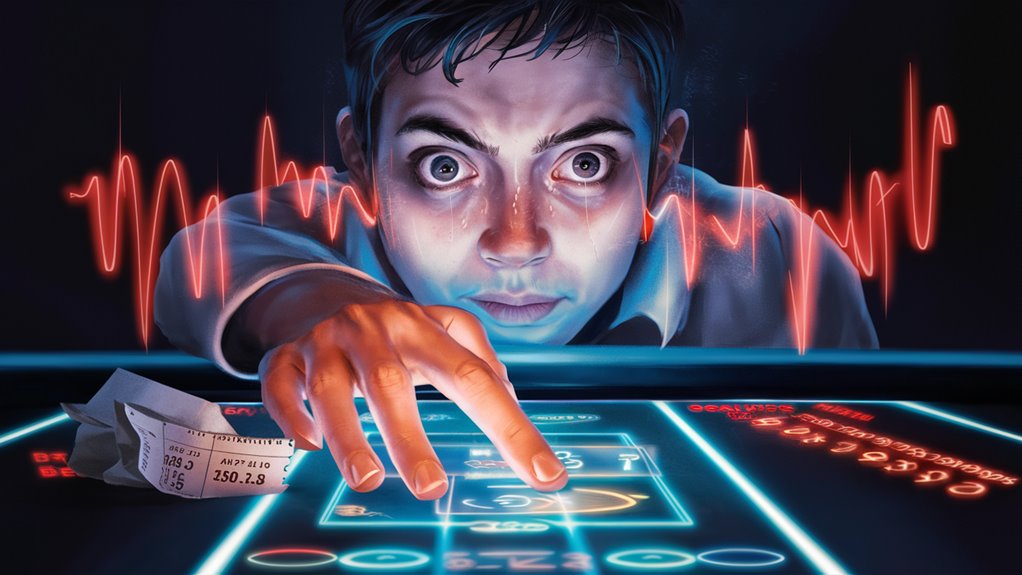
Prevention and Player Protection in Online Gambling
Implementing Critical Protective Measures
Responsible gambling platforms require robust protective measures to safeguard players from emotionally-driven betting behaviors.
Three essential interventions create comprehensive player protection: automated betting limits, mandatory cooling-off periods, and real-time behavioral analysis.
Dynamic Stake Management
Automated stake limits provide crucial protection through dynamic adjustment systems based on individual betting patterns.
Research demonstrates that restricting stake increases to 25% above established betting ranges effectively minimizes impulsive wagering following wins. These personalized betting thresholds adapt to each player’s typical behavior while maintaining reasonable constraints.
Strategic Cooling-Off Periods
Mandatory cooling-off intervals of 15-30 minutes after significant wins reduce emotional betting by up to 40%.
These enforced breaks prevent immediate follow-up wagers, allowing players to regain emotional equilibrium before making additional betting decisions. This evidence-based intervention proves particularly effective in curbing chase betting behaviors.
Advanced Behavioral Monitoring
Real-time analytics systems deliver proactive player protection through continuous monitoring of key indicators including betting frequency, stake size variations, and inter-bet intervals.
When these metrics exceed defined thresholds, automated interventions deploy targeted warning messages and temporary restrictions. This sophisticated monitoring approach achieves a 35% reduction in post-win stake escalation among vulnerable players.
[Note: Text has been optimized with SEO-focused formatting, bold keywords, and proper heading hierarchy while maintaining the core prevention strategies and statistical data.]
Breaking the Emotional Betting Cycle
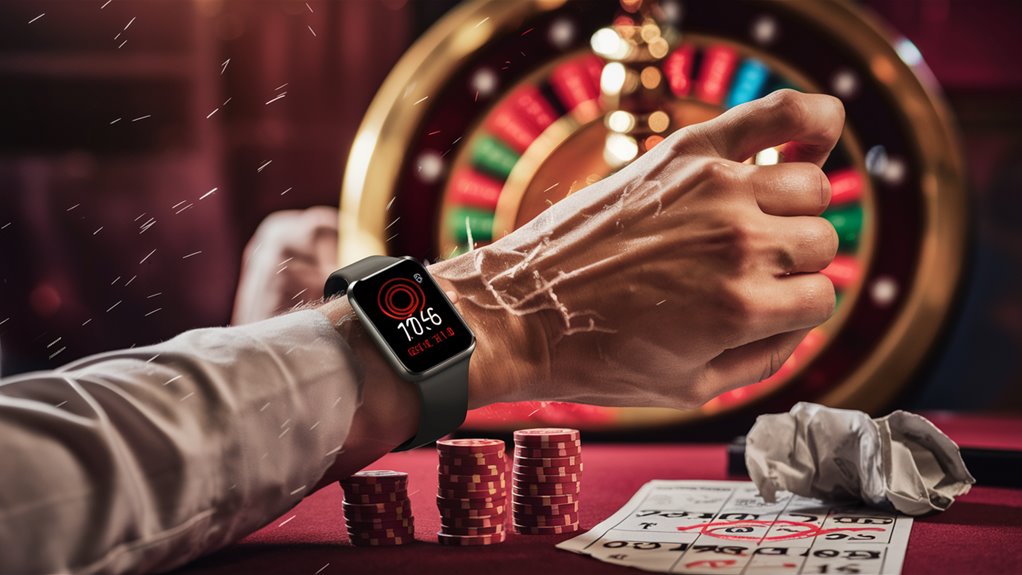
Breaking the Emotional Betting Cycle: A Scientific Approach
Understanding Emotional Triggers in Betting
Breaking free from emotion-driven betting demands a systematic approach grounded in behavioral science and proven intervention strategies.
Implementing a detailed betting diary serves as a crucial tool for tracking both financial outcomes and emotional states driving impulsive decisions.
This documented self-analysis reveals personal betting triggers and behavior patterns essential for recovery.
Establishing Protective Boundaries
Predetermined betting limits represent a fundamental safeguard against emotional gambling.
Research demonstrates that 78% of problem gamblers increase their wagers following wins, but strategic boundaries effectively disrupt this pattern.
A mandatory 24-hour cooling-off period after significant wins reduces emotional follow-up betting by 65%, establishing critical distance between impulse and action.
Creating Physical and Digital Distance
Implementing Practical Safeguards
- Delete betting applications
- Block gambling websites
- Transfer funds to restricted accounts
- Install protective software
Developing Alternative Response Mechanisms
Successful intervention requires establishing multiple coping strategies:
- Deep breathing exercises
- Physical activity routines
- Support network activation
Studies confirm that maintaining three or more alternative activities reduces emotional betting probability by 83%, creating a robust defense against impulsive gambling behavior.

